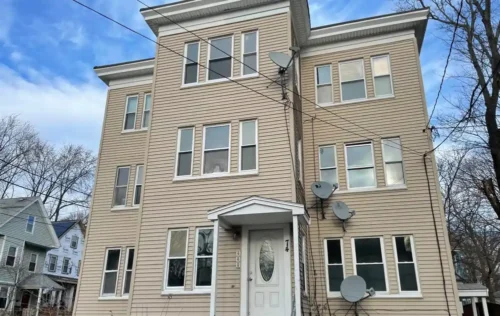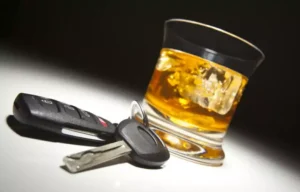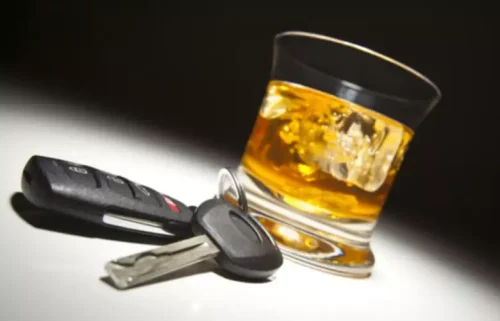No products in the cart.

You’ll meet a desperate young woman riddled with anger and fear from childhood trauma, and an equally desperate sober, single mom struggling to push those feelings aside to care for her young daughter. When she was drunk, writer and editor Hepola was a creative Drug rehabilitation force. But she was also reckless, often finding herself soberly apologizing for things she didn’t remember doing, waking up next to men she didn’t remember meeting and caring for bruises she didn’t remember getting. Subtitled “Remembering the Things I Drank to Forget,” Hepola’s debut memoir is a vulnerable story about refocusing her attention from finding her next drink to learning how to love herself without liquid enhancements. Occasionally reminiscent of Sylvia Plath, Karr’s writing style is simultaneously unsentimental and moving.
- She surely felt the reader (and perhaps the author) had endured too much pain in the preceding story to be sent away without solace.
- For these reasons, in many addiction memoirs the end is the weakest part.
- Michael Pond has treated people with addiction for years as a psychotherapist but finds himself homeless, broke and alone when he succumbs to his own battle with alcohol use disorder.
- For one kind of author, helping the reader is the whole point of writing an addiction memoir; for another, even to consider doing so would be aesthetically fatal.
- Burroughs talks about being hooked on “Bewitched” as a child, a show that exhibited an alcoholic husband among other things.
- High Achiever offers hope and inspiration and a raw and page-turning read.
Nonfiction Books » Best Biographies » The Best Memoirs and Autobiographies
They provide a lifeline of hope, coping techniques, and a deeper understanding of what it means to be in recovery. From inspirational bestsellers to celebrity memoirs, these tales of addiction and recovery offer advice, encouragement, and tips to help you face the challenges of sober living head-on. But seriously, I hope at least one of these memoirs speaks to you. Beyond the camaraderie of knowing you’re not alone, these books offer practical guidance about the road to sobriety (or your road to changing your relationship with drugs and alcohol).
- The result is a definitive treatment of the American recovery movement—a memoir in the subgenre like no other.
- Although I think they can all be considered addiction memoirs, and share a familial resemblance with other examples of that form, none of them feel remotely imprisoned by its conventions.
- It’s raw; it’s honest, and it’s a beautiful story of redemption and recovery.
- Quit lit books and addiction memoirs are powerful ways to connect with other people who have been exactly where you are.
- A 74-year old Native American found me at ten months in recovery.
- We find reprieve through our addictions, but find a loving life in recovery.
National Recovery + Wellness Month

I’d like to think Jerry Stahl’s Permanent Midnight influenced me, too, particularly by encouraging me to try and be harrowing and funny at once. From her excessive drinking and smoking to disordered eating and falling for the wrong men, Caroline Knapp is seemingly attracted to anything and everything that isn’t good for her. She drinks to cope with life’s difficulties, like the death of her parents, but it’s only after twenty years of dependency that she sees how the “cure” to her stress and anxiety is the real problem. Admitting you have a problem — not to mention actually getting sober — is no small feat. There’s no award for “Most Sobriety Memoirs Read,” so read them for yourself — let their wisdom be its own award (I can feel your eye rolls. I’m sorry.). Shortly after accepting she had a problem with alcohol, she thought a lot about how some people are lucky enough to be able to drink normally without it controlling their life.
The Best Nonfiction Books: The 2024 Baillie Gifford Prize Shortlist
- She drinks to cope with life’s difficulties, like the death of her parents, but it’s only after twenty years of dependency that she sees how the “cure” to her stress and anxiety is the real problem.
- I learned a lot from Clegg—or I hope I did—about how to convey the terrifying experience of a runaway binge.
- Only a handful of the addiction memoirs of recent decades are also, in my view, singular works of art.
- This is one of the first books I read about addiction ever, before I realized I had a problem.
- Reading great addiction memoirs about recovery can give you hope and remind you that you’re not alone.
- From painfully honest stories to science-based tips, there’s a title on this list that’s sure to inspire and motivate you or someone in your life.
During his days as a young Manhattanite working in advertising, he tried everything to hide his constant drinking, including spraying cologne on his tongue. Clare Pooley left her position at one of the world’s largest advertising agencies to focus on raising her three children. What was meant to be a positive and happy change led to depression, which she self-medicated with drinking, eventually consuming over a bottle of wine a day. If this book resonates with best alcohol recovery books you, be sure to check out Grace’s podcast of the same name, This Naked Mind, where she and guests continue to dissect alcohol’s grasp on our lives and culture.

Prior to getting sober, memoir author Sarah Hepola often drank until she blacked out. Blackout reveals how sobriety helped her discover the confidence, intimacy, and creativity within her—all of which she previously thought could only be found at the bottom of a bottle. While not a replacement for professional therapy and treatment, The Addiction Recovery Workbook can help equip you with coping techniques and actionable strategies to succeed in recovery, despite triggers, stressors, and daily challenges. Jerry Stahl was a writer with significant and successful screenwriting credits — Dr. Caligari, Twin Peaks, Moonlighting, and more. But despite that success, Stahl’s heroin habit began to consume him, derailing his career and destroying his =https://ecosoberhouse.com/ health until one final, intense crisis inspired him to get clean. In 1992, Mishka Shubaly survived a mass shooting at his school, his parents divorced, his father abandoned him, and he swore he would right all the wrongs for his mother.
“The addiction recovery workbook,” a personalized treatment plan for overcoming addiction

The right book can provide not only knowledge and practical tools but also a sense of connection and inspiration. Below, you’ll find some of the most insightful and helpful books to read during your recovery journey. Whether you’re looking for workbooks, memoirs, or guides on how to maintain sobriety, these books offer something valuable for everyone seeking hope and guidance. Quit lit books and addiction memoirs are powerful ways to connect with other people who have been exactly where you are.
- They provide a lifeline of hope, coping techniques, and a deeper understanding of what it means to be in recovery.
- The second major problem for anyone writing an addiction memoir—and it’s often connected to the first—is how to conclude it.
- The Sober Diaries follows the narrative of author Clare Pool’s journey in quitting drinking.
- In his first novel, Burroughs gives a vivid, semi-autobiographical account of heroin addiction in the early 1950s.
- It’s understandable to feel alone and like no one can relate to your addiction.
